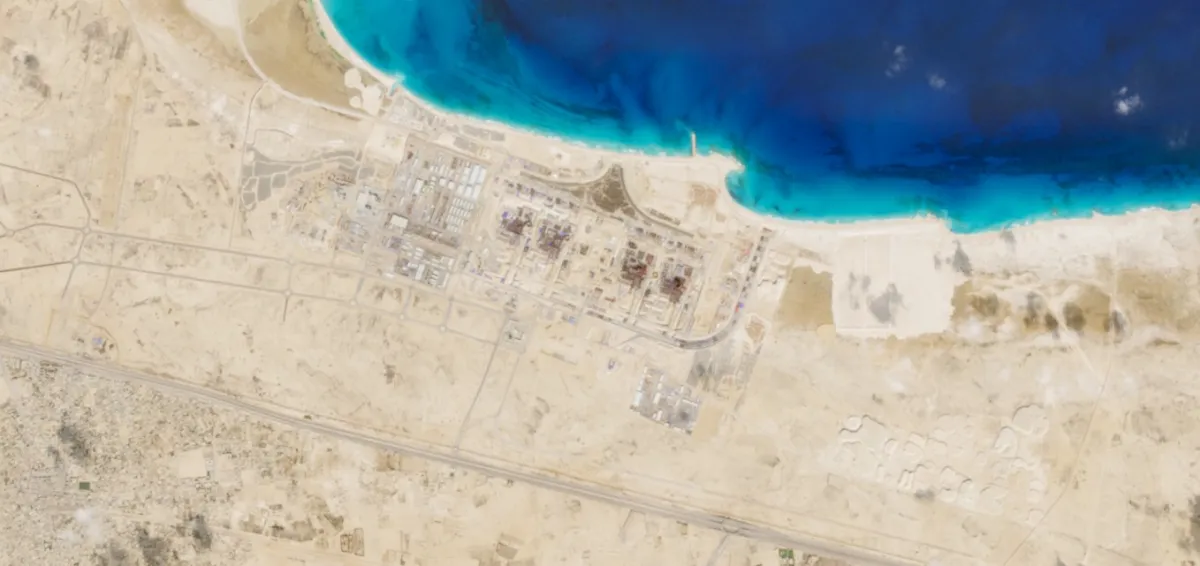
Satellite imagery showed construction progress at Egypt’s first nuclear power plant, El-Dabaa, a Russian-built facility set to host four reactors.
Russian President Vladimir Putin and Egypt’s President Abdel Fattah el‑Sisi celebrated the installation of the first reactor pressure vessel at the plant, in a video-conference on Wednesday.
“This marks a pivotal step that further advances the completion of El Dabaa Nuclear Power Plant project,” el-Sisi stated during the ceremony, highlighting strategic ties with Russia, “irrespective of regional or international challenges.”
Why It Matters
Egypt says having a nuclear power plant is a long-awaited dream that dates back to the Nasser era and has since faced political setbacks and delays. The new power plant supports its Vision 2030 for sustainable energy sources and security.
Egypt and Russia signed the agreement for the country’s first-ever nuclear energy project’s construction in 2015. The El Dabaa deal marked the beginning of a broader Russian push into Africa’s civilian nuclear sector.
Similar nuclear energy ambitions are emerging across the Middle East, with Saudi Arabia recently inking a deal with the United States that paves the way for a civilian nuclear partnership.
What To Know
The plant is located on Egypt’s northern Mediterranean coast spanning roughly 12,000 feddans (approximately 12,400 acres). Egypt installed the Reactor Pressure Vessel (RPV) for El Dabaa’s first nuclear unit Wednesday. The plant is set to have four Russian-designed VVER-1200 Generation III+ pressurized water reactors.
The two sides also signed a nuclear fuel procurement order, in line with the 2015 agreement, under which Russia will supply the plant’s nuclear fuel. Rosatom is building the four reactors of the plant that will supply electricity to Egypt and will also construct a storage facility with casks for spent nuclear fuel.
Construction of the nuclear power plant began in 2022 and was estimated to be completed within 12 years at the cost of nearly $20 billion, with Russia providing a loan that would cover a large part of construction expenses, according to the Egyptian State Information Service.
In recent years, Egypt, which has a population of about 110 million people, has faced recurring power cuts amid surging electricity demand, declining natural gas production, and broader economic challenges.
What People Are Saying
Egyptian President Abdel Fattah el-Sisi said on November 19: “This colossal national edifice is endowed with profound strategic significance for Egypt and sends a vibrant message: that we are proceeding with steady and firm steps toward a more advanced and sustainable future. We have surmounted all challenges, driven by sincere resolve and diligent efforts, to reach this advanced stage of implementation.”
Russian President Vladimir Putin said, quoted by The Moscow Times: “We’re entering a key stage in the technological outfitting of the station, and it will be able to start producing electricity in the near future.”
Rosatom Director General Alexey Likhachev said: “Construction work on all power units is well underway.”
What Happens Next
The El-Dabaa nuclear plant is expected to produce up to 4,800 megawatts once completed, authorities say.
